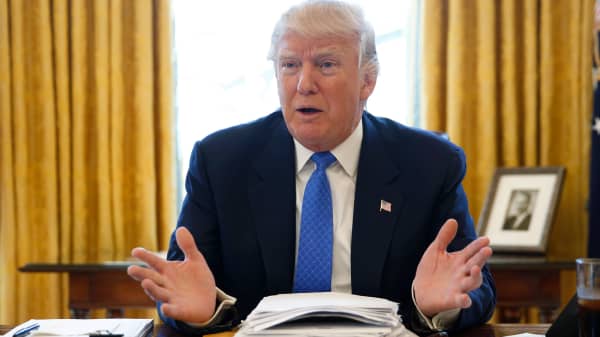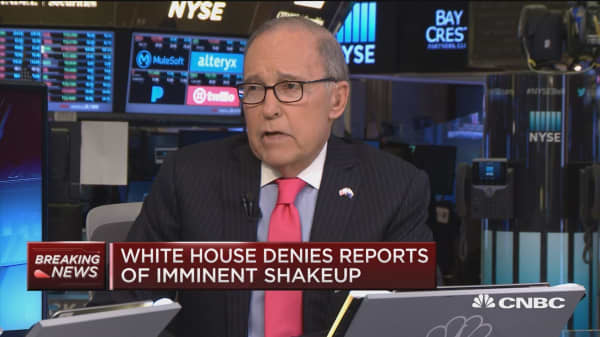President Trump has apparently scrapped his plan for tax reform and is starting over.
White House officials say it is now unlikely that they will meet the August deadline for tax reform set by Treasury Secretary Steve Mnuchin, according to the AP. The White House is also trying to learn from its mistakes on health-care reform, with White House officials more involved in crafting the legislation — not just leaving it up to Congress.
Scrapping the original tax plan is a good thing because many of the ideas there were considering were just plain bad. But as the White House and GOP re-work this policy, the White House and the GOP don't need to find new policies. They need to find some real backbone.
That's because the Republicans have spent the last five months proving that most of them don't have the guts to back the key conservative fiscal principles they supposedly stand for. Chief among them is the proven fact that cutting taxes spurs the economy and eventually raises tax revenues. A close second is the belief that smart budget cutting also boosts private sector investment and jobs.
Let's start with the tax-cutting argument, because it sure looks like House Speaker Paul Ryan, Ways and Means Chairman Kevin Brady, and some of their counterparts in the White House have forgotten the "Laffer Curve." The Laffer Curve is the theory developed by supply-side economist Arthur Laffer that explains that lower tax rates initially bring in lower tax revenues, but eventually lead to economic booms that more than make up for those early losses in more tax revenue collection.
If you look back at tax cuts enacted by Presidents Warren Harding and John F. Kennedy based on the same conservative argument, they ultimately resulted in greater federal tax revenue overall and a surging economy.





